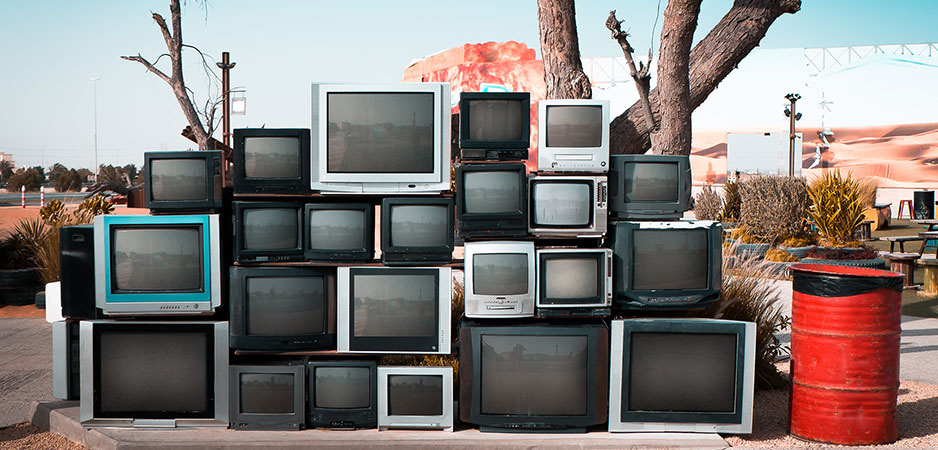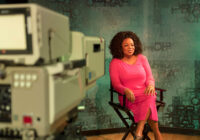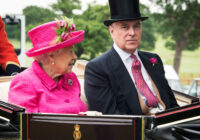Imagine it’s 1997, and you’re leaving a TV studio in Chicago where you’ve been part of an audience for the recording of “The Jerry Springer Show.” You’ve watched, judged and laughed at people from super-dysfunctional families talking through their “issues,” as personal problems are now called. Sex, drugs, religion, mid-life crises, more sex — they’re all up for discussion. Like the rest of the audience, you loved it. On the way home, you say to your friend: “We could do a European variation on this, except go one better: We could lock people away, install cameras and mics in every room and let them … well, do as they please.”
“What?” your friend fires back. “It sounds like one of those American psychological experiments of the 1960s.” You nod: “That’s right: we could set them tasks or challenges of some kind and watch how they react. A natural experiment.” Your friend is skeptical. “Another one of your bright ideas. But, as usual, you’re forgetting to ask one crucial question: Who the bloody hell would watch it?” But your idea is timely: People are becoming unselfconscious and relaxed about talking frankly, even about aspects of their lives that make audiences blush. What if you could make them not just talk but behave in a way that would register the same reaction?
Are the Windsors the New Kardashians?
Big Brother had an answer. Over 4,000 miles away from Chicago, a Dutch TV producer, John de Mols, seems to have experienced a eureka moment and come up with a wildly inventive, convention-breaking format that could have been (and probably was) designed for attention-deficient TV audiences who found long fictional narratives exhausting and anything else aggravating. “Big Brother” had no script, no workshop, no roles: It just thrust people from different backgrounds together in a secure space from which there was no obvious escape and installed cameras and microphones in every room, turning every private moment into a public spectacle.
Well, I Never!
The British version of “Big Brother” launched 20 years ago, on July 18, 2000, on Channel 4. No one could have predicted that it would become one of the most influential TV shows of the century so far. It has spawned dozens of imitators and inspired an entire genre of reality television. Even today, the likes of “Love Island” (a causality of the pandemic this year) draws huge audiences and sparks arguments that are usually splattered across the tabloids. “Big Brother” was more than a TV show: It was a phenomenon.
The format of what we now call reality TV had been around since at least 1992, when MTV introduced “The Real World,” and possibly as far back as 1973 if we include PBS’s “An American Family,” which was a nascent form of the genre. The uniqueness of “Big Brother” was its timing: Its premise of interning people in a house and setting them tasks, while viewers voted on who they wanted to evict, would have suited one of the previously mentioned experiments of the 1960s. But in 2000, when voyeurism was newly respectable, it was perfect for TV.
The beauty of “Big Brother” was that it didn’t expect audiences to sit respectfully and gasp “shameful … shocking … well, I never!” It drew them into the program, until they effectively became part of the narrative as it spontaneously unwound, a bit like the experimenters who administered the electric shocks to non-compliant participants in Stanley Milgram’s project. It was an attempt to be interactive before even the internet had become properly interactive. Audiences didn’t know it at the time, but the most profound change in television since its inception in the 1950s was going on — the division between performers and spectators was being dissolved.
“Big Brother” was first to exploit this but, in 2009, America’s “Jersey Shore” wrung it dry. It became MTV’s most successful show ever, with an average of 9 million viewers at the height of its popularity, spiking after cast member Nicole “Snookie” Polizzi got punched in the face. Presumably, some insightful producer made a causal connection: disclose aspects of human behavior that viewers find disgusting or nauseating and audience figures rise. “Big Brother,” like “Jersey Shore,” was lambasted by the media. Yet, paradoxically, this actually assisted its rise. The more audiences glared at ordinary people, the more the effects became extraordinary.
Discovery of Jade
“Big Brother” found its ideal housemate in Jade Goody, a woman who posed some awkward but interesting questions, the main one being: Are we really as cruel as the newspapers we read? The redtops were merciless in their contempt, ridiculing her looks, grammar and indiscretions with an abusiveness that would be intolerable today. Viewers found her compelling — in one way or another. She exited the “Big Brother” house in fourth place in 2002, then found herself in clover with well-paying assignments that kept her busy for years and lent permanence to what might otherwise have been ephemeral renown.
Over the next few years, Goody featured in over 20 reality shows, licensed her own fragrance, released DVDs, published a biography and wrote her own magazine column. She also returned to the set for “Celebrity Big Brother” in 2007 and made disparaging and, for many, racist remarks about housemate Shilpa Shetty. In 2008, she collapsed on the set of a reality television show in India and was later diagnosed with cancer. She died in 2009, the last few weeks of her life filmed as a TV documentary.
Channel 4 never found another Jade Goody, who could keep journalists ranting and viewers gossiping. Audience figures dwindled from their 10-million peak, and, in 2010, the channel dropped the show, leaving Channel 5 to reboot it, though never with the same success it had in the early 2000s. Its final series drew less than one million viewers. Like every TV show that subverted the formulaic, “Big Brother” succumbed to formula.
End of Privacy?
The effects of “Big Brother” and other reality shows like Britain’s “Geordie Shore” provide a sort of index to our changing sensibilities. Entertainment is not just entertainment. It can enlighten, inform and edify; it can also prod, upset and annoy. But we, the audience, decide for ourselves what we like rather than rely on others to dictate to us. Audiences who warmed to “Big Brother” didn’t so much ignore the critics as discovered reward in disagreeing with them.
Television has been the dominating medium of the past 70 years or so. Obviously, it now has a serious challenger, but, in a sense, TV has been the life form that emerged in the middle of the last century and proceeded to change all other life forms. No one guessed back then that we were so fascinated with the lives of others. Reason: We probably weren’t. TV has contributed to the cultivation of that new taste. Aided by celebrity-oriented publications and a mainstream media fighting for relevance in a changing market, reality TV transformed us all into guiltless snoopers into others’ private lives. And, if you stare for too long at private lives, they eventually cease to be private. Then, the whole concept of privacy becomes uncertain. Privacy meant something like a state in which we were not the focus of public attention and others couldn’t listen to our conversations. Does such a state even exist now? Next time you are on a train or bus, listen to the conversations (thanks to speakers, you can often listen to both ends of the conversation) and wonder if, 20 years ago, people would have discussed anything, let alone personal matters, in anything but hushed tones.
Is “Big Brother” responsible for this? Partly. Should we be offended? Again, partly. But only in the same way we are offended when we look in the mirror and see someone we partly like and partly hate. “Big Brother” offered an ambitious and innovative way of holding that mirror. Critics complained it wasn’t “reality.” Of course it wasn’t: It was televised entertainment that dared to reflect what happens when common people wind up in uncommon circumstances. The results were sometimes dull, sometimes explosive, always instructive. Just like reality, in fact.
*[Ellis Cashmore is the author of “Kardashian Kulture”]
The views expressed in this article are the author’s own and do not necessarily reflect Fair Observer’s editorial policy.
Support Fair Observer
We rely on your support for our independence, diversity and quality.
For more than 10 years, Fair Observer has been free, fair and independent. No billionaire owns us, no advertisers control us. We are a reader-supported nonprofit. Unlike many other publications, we keep our content free for readers regardless of where they live or whether they can afford to pay. We have no paywalls and no ads.
In the post-truth era of fake news, echo chambers and filter bubbles, we publish a plurality of perspectives from around the world. Anyone can publish with us, but everyone goes through a rigorous editorial process. So, you get fact-checked, well-reasoned content instead of noise.
We publish 2,500+ voices from 90+ countries. We also conduct education and training programs
on subjects ranging from digital media and journalism to writing and critical thinking. This
doesn’t come cheap. Servers, editors, trainers and web developers cost
money.
Please consider supporting us on a regular basis as a recurring donor or a
sustaining member.
Will you support FO’s journalism?
We rely on your support for our independence, diversity and quality.






